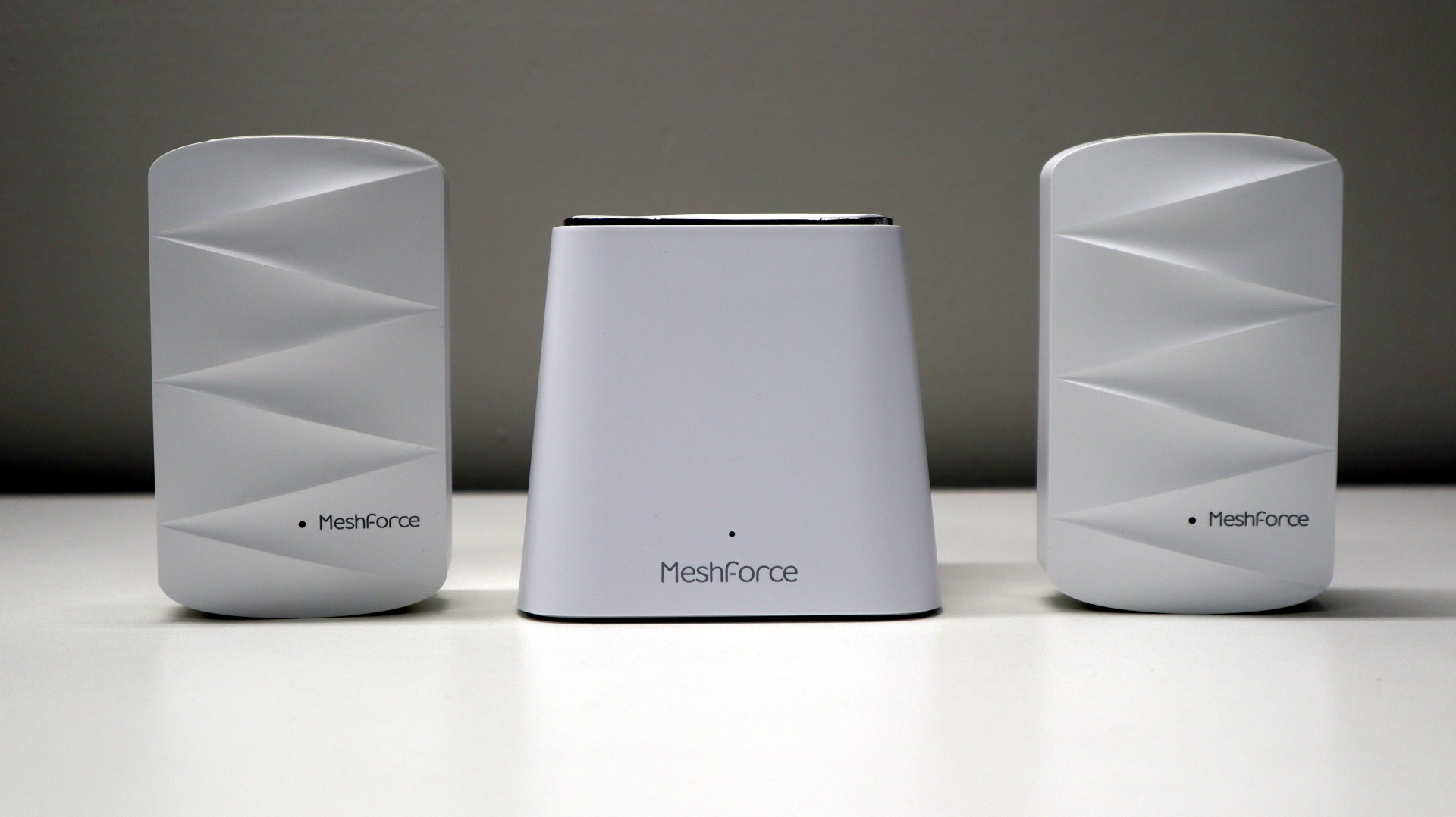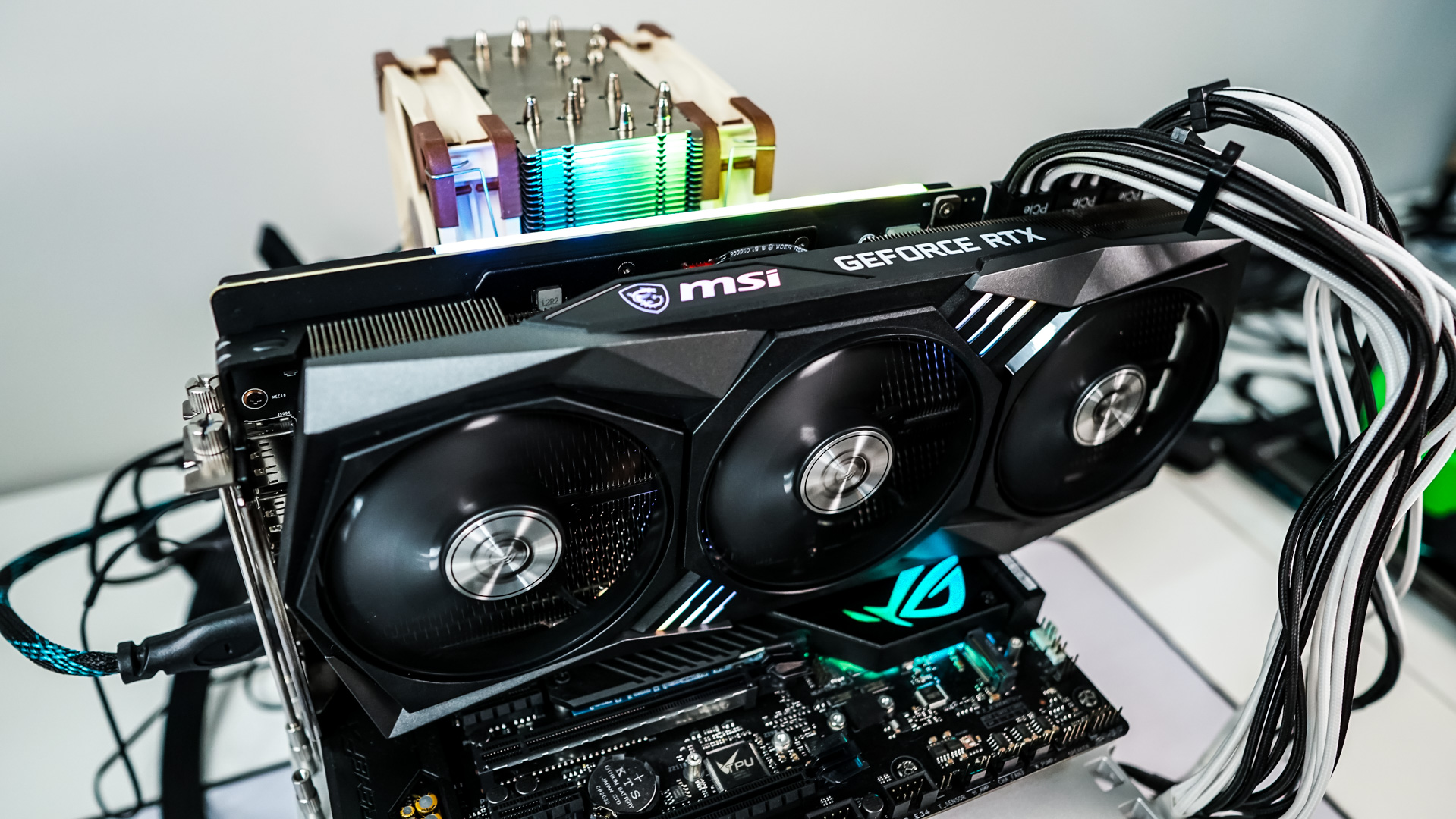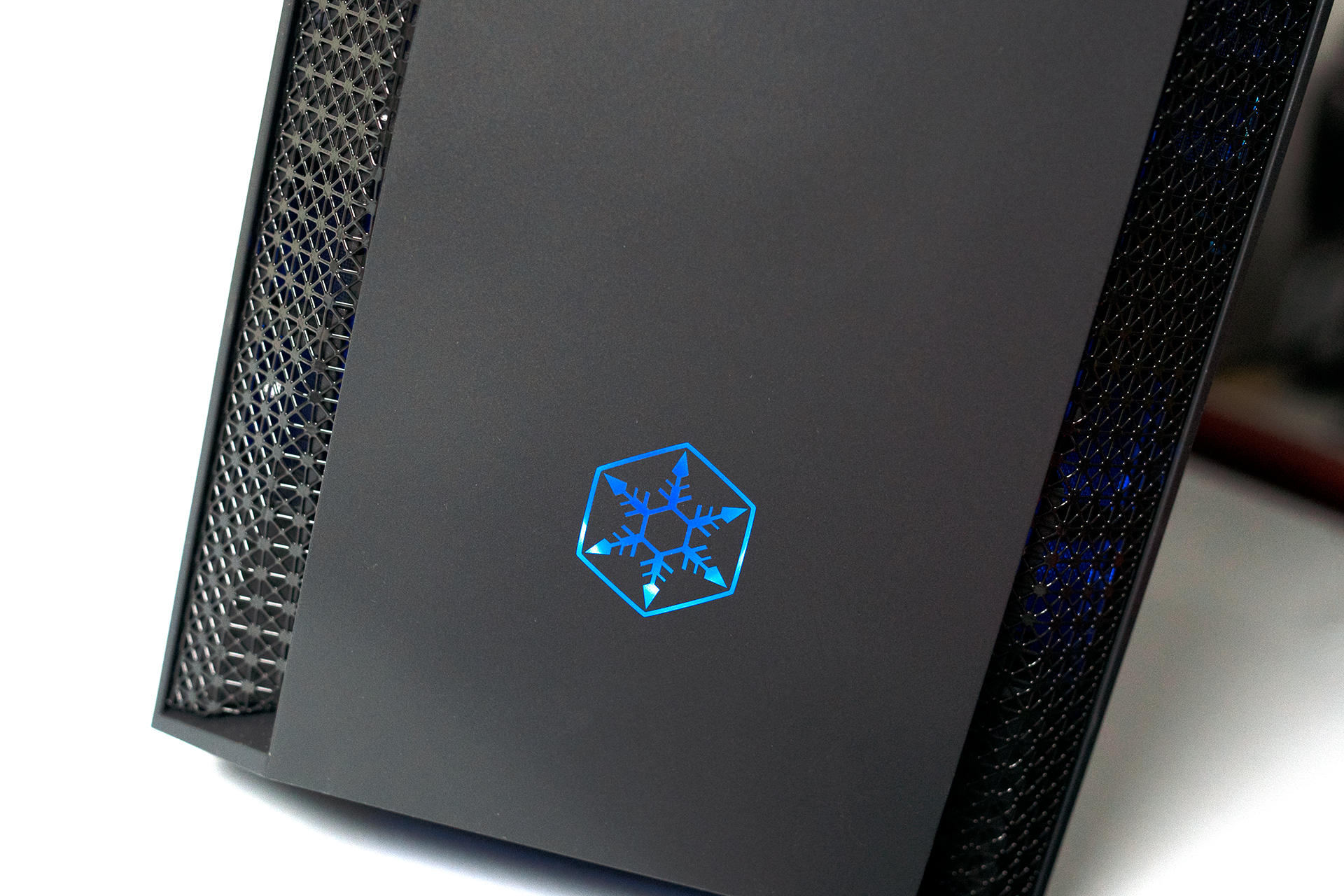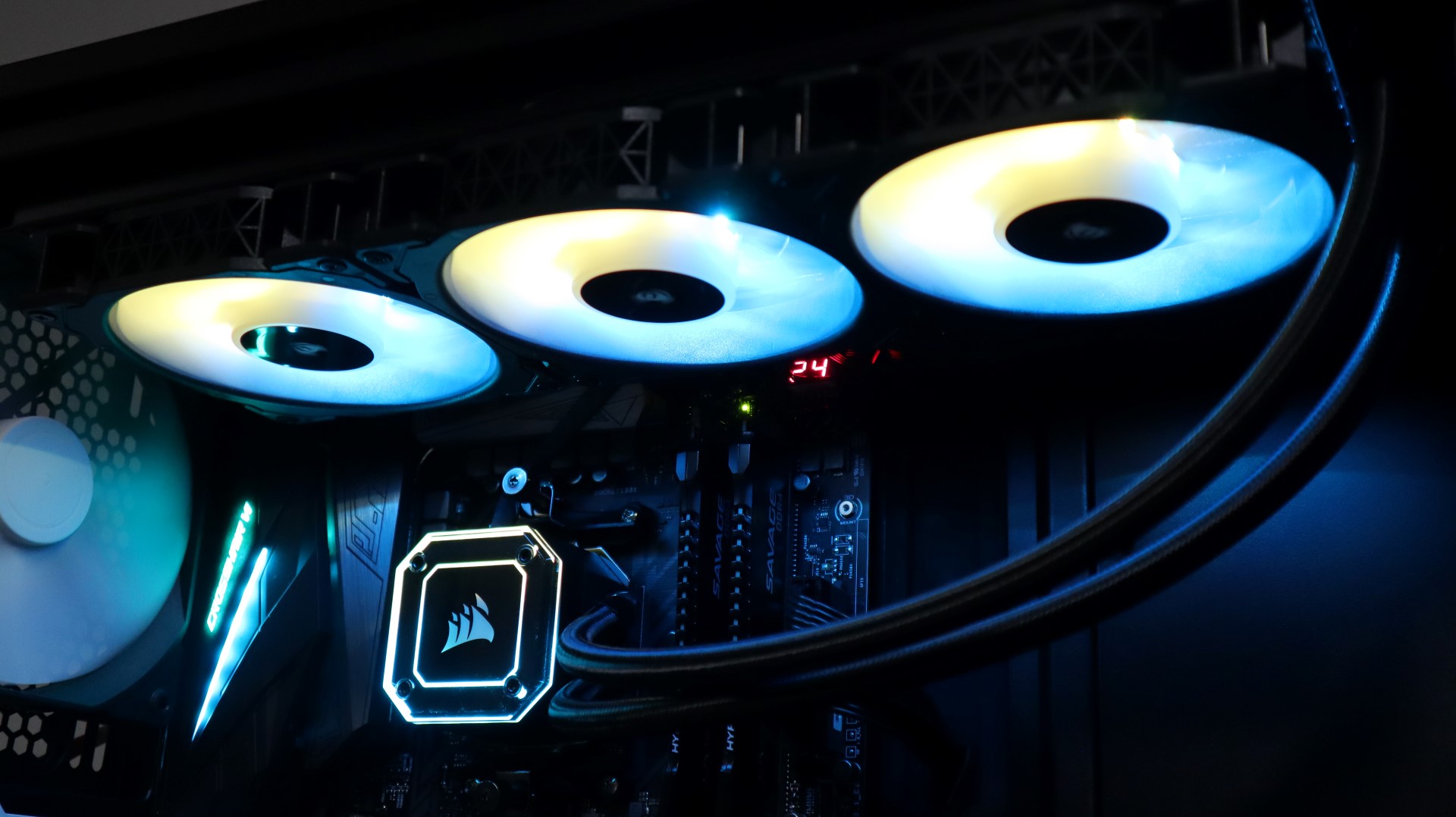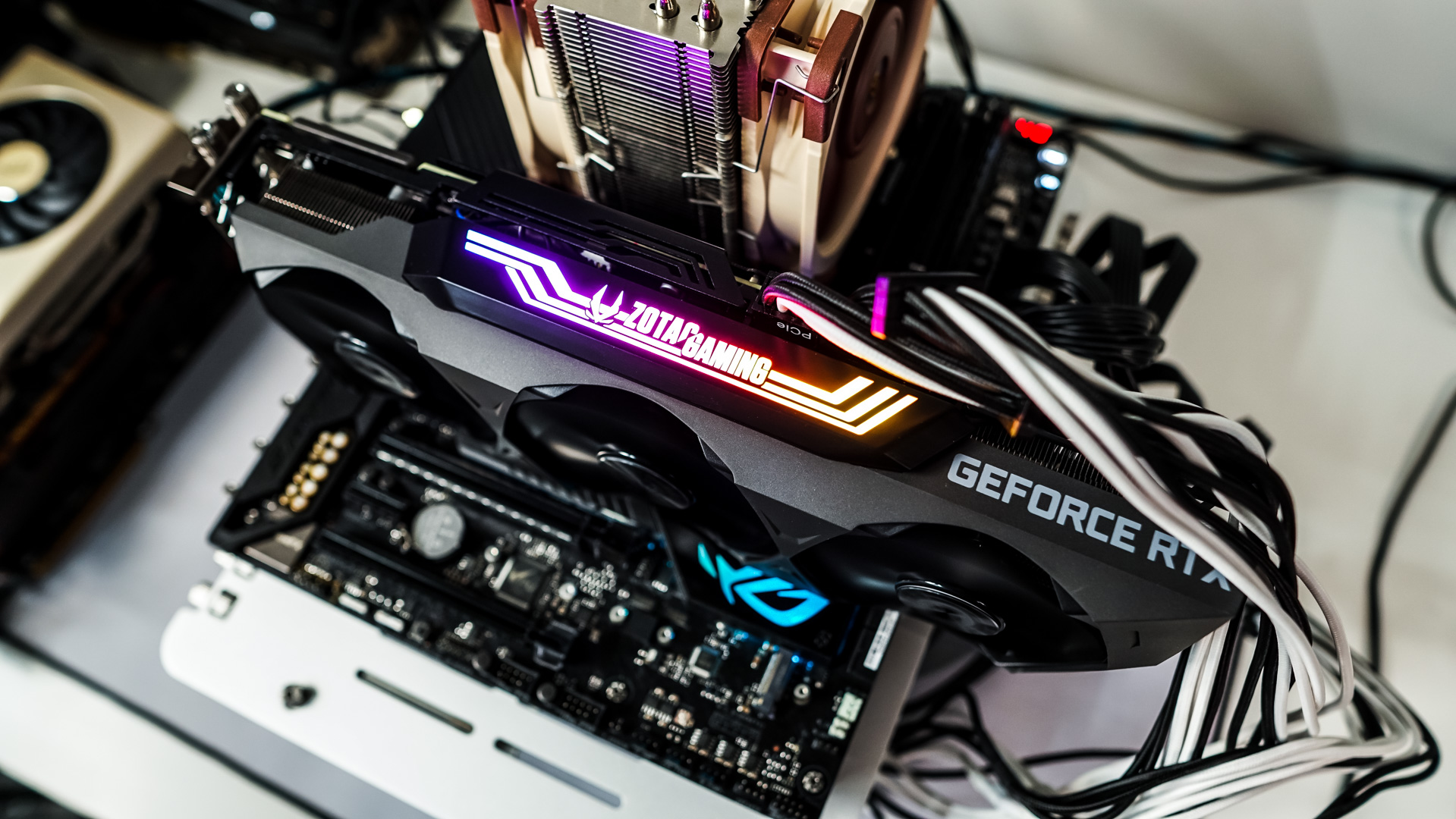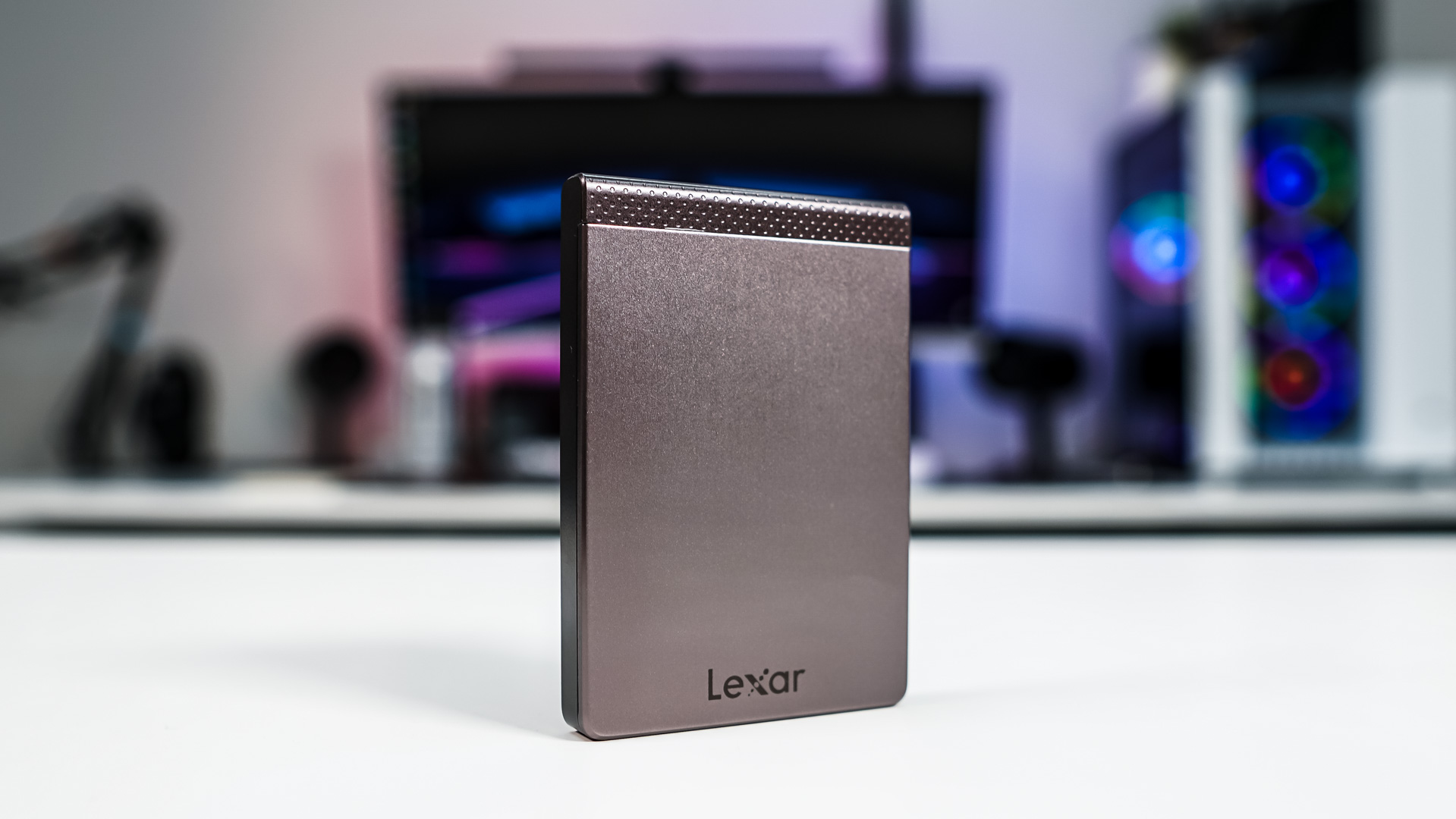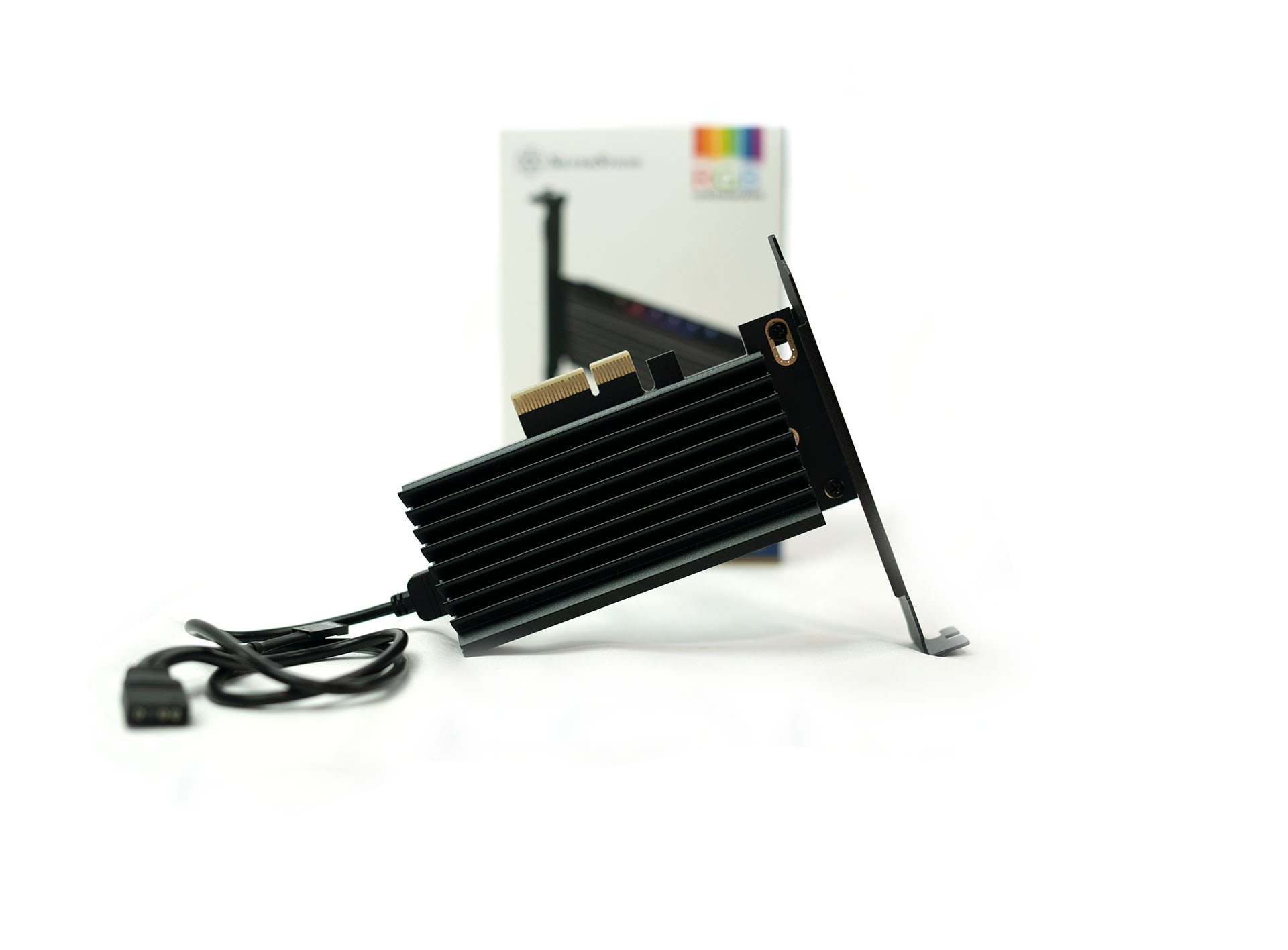M3 and M3 Dot Overview
As our review unit includes not just the M3, but two M3 Dot devices, we will be taking a look at each of these items individually.
M3
The main base station for the kit is quite sleek, and at first we thought that it might even be a hollow shell, it is that lightweight. Made of a smooth white plastic body with chrome accents, the M3 is the single required unit for this system – the optional M3 Dots are optional, but if you have purchased this mesh system, you should really be using them.
On the front of the M3 we have a small MeshForce nameplate towards the bottom, as well as a single LED light that is used as a status indicator for the system. The left and right sides of the M3 base station are void of any notable features.
Up top, we find an angular panel that is trimmed with a chrome plastic ring for aesthetics.
At the back of the M3 we find a recessed reset button, two RJ-45 connections, labeled WAN/LAN and LAN, as well as a standard barrel power connector. As the M3 WiFi unit can be used in bridge mode, this is why we see both ports with the LAN designation, as in this mode the M3 is working alongside existing network equipment in most cases.
At the bottom of the base station is a sticker with various power and regulatory information, as well as a QR code and initial wireless network setup information. Additionally, we have two mounting holes that would allow you to install the unit on the wall or ceiling with a few screws.
M3 Dot
At the front of the M3 Dot units we find the same angular design found on top of the base unit. Again we find a MeshForce nameplate as well as a small LED indicator.
On the back of the M3 Dot we have a standard, 2-prong power connection as well as a sticker with similar power and regulatory information. Multiple horizontal slits are present to provide passive cooling to the internal components.
At the bottom of the M3 Dot are a single Ethernet port for wired backhaul use, and a recessed reset button. We are really glad to see the wired backhaul option with this system, as it can really improve the performance of the system’s M3 Dot units by providing a stable connection back to the base unit, as opposed to relying on a wireless signal for transmission between the M3 Dots and M3 base.
